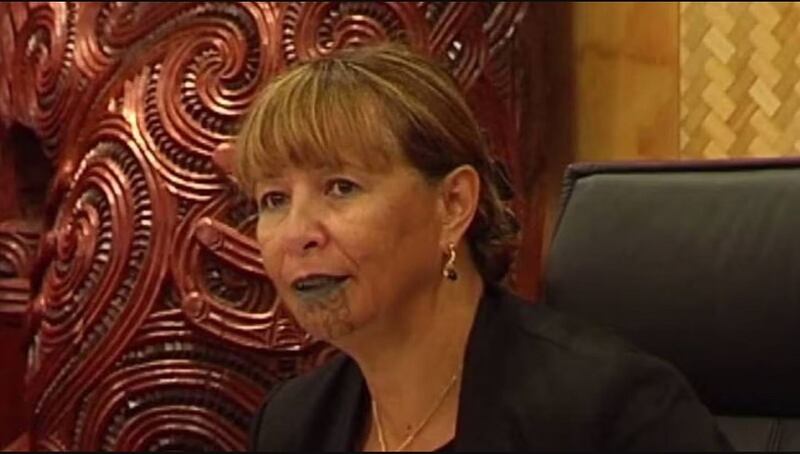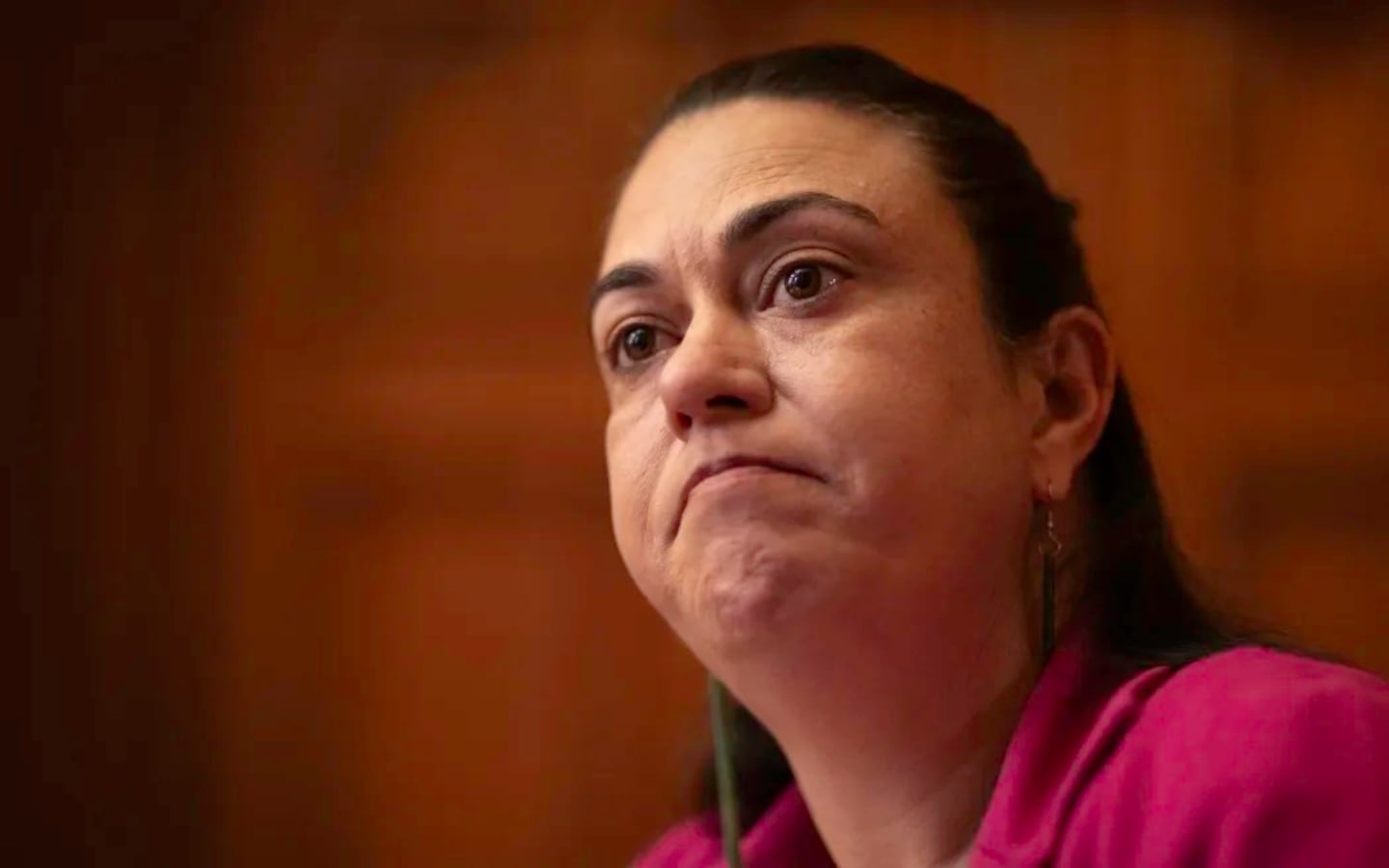Latest: The High Court has reserved its decision.
A Crown case trying to get a judicial review into a Waitangi Tribunal summons issued to the Children’s Minister who refused to talk to the Waitangi Tribunal has concluded at the Wellington High Court with the judge reserving judgment.
This may mean the judge delivers a decision after the government puts its proposed law changes before Parliament at which time by law any Waitangi Tribunal inquiry is automatically ended.
Lawyers representing the Crown and Waitangi Tribunal claimants presented arguments for and against a tribunal summons ordering Minister Karen Chhour to provide evidence at its urgent inquiry into the repeal of Section 7AA of the Oranga Tamariki Act.
Section 7AA legally binds Oranga Tamariki to improve outcomes for tamariki Māori and demonstrate adherence to Treaty principles.
Crown lawyers filed papers with the High Court late last week in a bid to block the order and the hearing kicked off on Monday at 10am.
The Crown claimed the tribunal had acted in an unlawful and coercive manner, despite having the authority to summons the minister.
It also described the summons as “unorthodox and unprecedented “, and that Oranga Tamariki officials had already provided enough evidence to the Tribunal.
Lawyers representing tribunal claimants told the court the minister had consistently refused to provide evidence in person or via affidavit.
They also pointed out that no public consultation on the planned repeal had been conducted and the reasoning behind the planned repeal was based on anecdotal information.A legal and political battle has erupted over the Waitangi Tribunal’s request to hear Children’s Minister Karen Chhour’s reasoning for removing Treaty provisions from the Oranga Tamariki Act.
In a rare move, the Ttibunal then issued a summons to Chhour after she refused to voluntarily answer written or verbal questions.
Meanwhile Prime Minister Christopher Luxon has said he was not not happy with how ACT’s David Seymour and NZ First’s Shane Jones had criticised the Ttibunal, calling their comments “ill considered”.
After saying the tribunal had “picked the wrong fight”, Seymour said: “Perhaps they should be wound up for their own good.”
Jones made similar comments, saying he was looking forward to reviewing the tribunal because it had summonsed Chhour.
Why it matters
- The Waitangi Tribunal is holding an urgent inquiry into the Government’s proposal to remove Section 7AA of the Oranga Tamariki Act. This section imposes obligations on the ministry to abide by Te Tiriti o Waitangi. One practical effect of this is that when the ministry uplifts children, it should consider how to keep tamariki Māori connected to their whakapapa.
- Chhour has refused to answer questions about this proposal at the Tribunal, leading to an extraordinary move where she has been summonsed to appear at the Tribunal. Crown Law is fighting to counteract that summons, launching proceedings at the High Court.
- Luxon is navigating a raucous coalition, with both ACT and NZ First making comments he deemed “ill considered”. While in the Philippines, the prime minister rebuked Seymour and Jones by saying he would ensure both ministers understood they shouldn’t be criticising the judiciary.
The breakdown
Why Luxon rebuked his ministers:
The Cabinet Manual, which is a rulebook for ministers, warns them not to make comments that bring into question the judiciary.
“Ministers must exercise judgement before commenting on matters before the courts or judicial decisions,” it states.
And continues, “Ministers should not express any views that are likely to be publicised if they could be regarded as reflecting adversely on the impartiality, personal views, or ability of any judge.”
The Tribunal is a judicial body, led by Chief Judge Caren Fox of the Māori Land Court.

What’s going on at the Waitangi Tribunal?
The Tribunal is analysing evidence behind the Government’s intention to remove Treaty obligations from the Oranga Tamariki Act.
This repeal proposal was highly controversial amongst iwi, survivors of abuse in state care, and the Children’s Commission.
Chief Children’s Commissioner Dr Claire Achmad said Section 7AA had only recently been added to the act, by the previous National Government, after multiple inquiries into abuse and malpractice at Child Youth and Family.
Supporters of Section 7AA argued removing it would specifically harm tamariki Māori, causing further harm and cultural discloation if they are removed from their parents.
But Luxon said he supported repealing the Treaty obligation.
“We want to make sure that actually social workers understand legislatively that the obligation is to place children in good homes. As to what ethnicity those families or those foster parents may be, is largely irrelevant,” he said.
Who said what
Jones said the Tribunal should not consider whether Government policy conflicted with Te Tiriti.
He said he was looking forward to reviewing its mandate as a minister, calling it “some kind of wannabe American star chamber pulp fiction gig”.
Seymour, in a press release, said: “I’m worried they haven’t thought about who they’re dealing with. Karen is a Māori woman who survived the state care system. By their own standards, they are buying a fight with someone of much greater mana.”
He continued: “The Tribunal summonsed the wrong woman, on the wrong issue, at the wrong time. No wonder some people think they’re past their use-by date. Perhaps they should be wound up for their own good.”
Defending the Government’s plan to repeal Section 7AA, he said it had led to “reverse uplifts” where children had been taken from “loving homes due to the ethnicity of the carers”.
On Friday afternoon, the war of words heated up as Seymour hit back against Luxon’s criticism.
“I’m surprised to hear this, if you have a concern about another leader’s comments you should raise them directly rather than through media, which is what I now intend to do,” he said.

The arguments
Can a minister be summonsed?
Public law experts said the Tribunal had the right to summons.
Otago University Professor Andrew Geddis said he couldn’t see much of an argument for why Chhour couldn’t be summonsed.
“I don’t think there’s any doubt about the Tribunal’s legal power to summon the minister as a witness,” he said.
Geddis and Victoria University Professor Dean Knight expected Crown Law would argue that the Tribunal questioning a minister could challenge constitutional norm and Cabinet conventions.

Have ministers overstepped?
While Chhour’s lawyers will use constitutional conventions to keep her away from the Tribunal, the Māori Law Society said ministers’ comments about the Tribunal had breached those same conventions.
“The comments, which are paired with a threat of executive review of the function and purpose of the Tribunal could also have a chilling effect and reflect adversely on Waitangi Tribunal decisions going forward,” Natalie Coates, the tumuaki of Te Hunga Rōia Māori o Aotearoa, wrote in a letter to Luxon earlier this week.
“These comments breach the separation of powers and are likely to breach the Cabinet Manual,” she said.
Luxon appeared to agree on Friday, saying: “Those remarks, I think are ill-considered. I think ministers need to exercise good judgement.”
What next?
The High Court will hear Crown Law’s argument against the summons on Monday, in a case titled Minister for Children v The Waitangi Tribunal.
In a submission to the Tribunal last week, Crown Law said the repeal bill could be introduced to Parliament as soon as mid-May.


